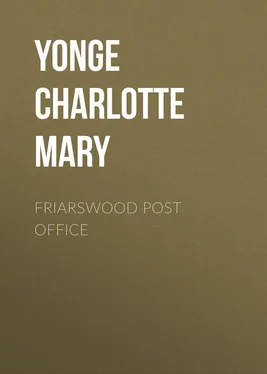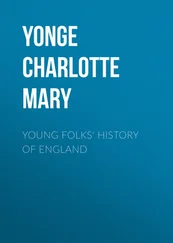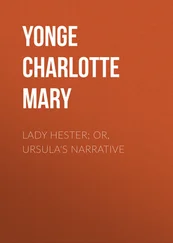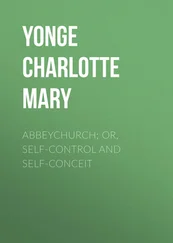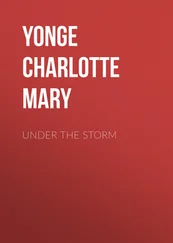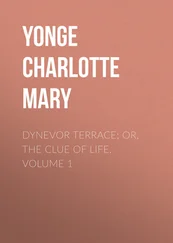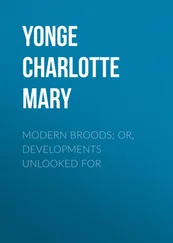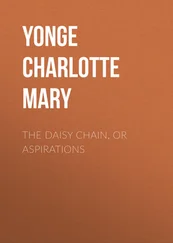Charlotte Yonge - Friarswood Post Office
Здесь есть возможность читать онлайн «Charlotte Yonge - Friarswood Post Office» — ознакомительный отрывок электронной книги совершенно бесплатно, а после прочтения отрывка купить полную версию. В некоторых случаях можно слушать аудио, скачать через торрент в формате fb2 и присутствует краткое содержание. Жанр: foreign_prose, literature_19, Европейская старинная литература, foreign_antique, на английском языке. Описание произведения, (предисловие) а так же отзывы посетителей доступны на портале библиотеки ЛибКат.
- Название:Friarswood Post Office
- Автор:
- Жанр:
- Год:неизвестен
- ISBN:нет данных
- Рейтинг книги:3 / 5. Голосов: 1
-
Избранное:Добавить в избранное
- Отзывы:
-
Ваша оценка:
- 60
- 1
- 2
- 3
- 4
- 5
Friarswood Post Office: краткое содержание, описание и аннотация
Предлагаем к чтению аннотацию, описание, краткое содержание или предисловие (зависит от того, что написал сам автор книги «Friarswood Post Office»). Если вы не нашли необходимую информацию о книге — напишите в комментариях, мы постараемся отыскать её.
Friarswood Post Office — читать онлайн ознакомительный отрывок
Ниже представлен текст книги, разбитый по страницам. Система сохранения места последней прочитанной страницы, позволяет с удобством читать онлайн бесплатно книгу «Friarswood Post Office», без необходимости каждый раз заново искать на чём Вы остановились. Поставьте закладку, и сможете в любой момент перейти на страницу, на которой закончили чтение.
Интервал:
Закладка:
But when this learned geographer advanced into the shop, and asked for a loaf, what a hand and what a sleeve did he stretch out! Ellen scarcely liked to touch his money, and felt all her disgust revive. But, for all that, and for all her fear of Harold’s running into mischief, what business had she to set it about that the stranger was an escaped convict?
Meanwhile, Alfred had plenty of food for dreaming over his fellow sufferer. It really seemed to quiet him to think of another in the same case, and how many questions he longed to have asked Mr. Cope! He wanted to know whether it came easier to Jem to be patient than to himself; whether he suffered as much wearing pain; whether he grieved over the last hope of using his limbs; and above all, the question he knew he never could bear to ask, whether Jem had the dread of death to scare his thoughts, though never confessed to himself.
He longed for Mr. Cope’s next visit, and felt strongly drawn towards that thought of Jem, yet ashamed to think of himself as so much less patient and submissive; so little able to take comfort in what seemed to soothe Jem, that it was the Lord’s doing. Could Jem think he had been a wicked boy, and take it as punishment?
CHAPTER IV—PAUL BLACKTHORN
‘I say,’ cried Harold, running up into his brother’s room, as soon as he had put away the pony, ‘do you know whether Paul is gone?’
‘It is always Paul, Paul!’ exclaimed Ellen; ‘I’m sure I hope he is.’
‘But why do you think he would be?’ asked Alfred.
‘Oh, didn’t you hear? He knows no more than a baby about anything, and so he turned the cows into Darnel meadow, and never put the hurdle to stop the gap—never thinking they could get down the bank; so the farmer found them in the barley, and if he did not run out against him downright shameful—though Paul up and told him the truth, that ’twas nobody else that did it.’
‘What, and turned him off?’
‘Well, that’s what I want to know,’ said Harold, going on with his tea. ‘Paul said to me he didn’t know how he could stand the like of that—and yet he didn’t like to be off—he’d taken a fancy to the place, you see, and there’s me, and there’s old Cæsar—and so he said he wouldn’t go unless the farmer sent him off when he came to be paid this evening—and old Skinflint has got him so cheap, I don’t think he will.’
‘For shame, Harold; don’t call names!’
‘Well, there he is,’ said Alfred, pointing into the farm-yard, towards the hay-loft door. This was over the cow-house in the gable end; and in the dark opening sat Paul, his feet on the top step of the ladder, and Cæsar, the yard-dog, lying by his side, his white paws hanging down over the edge, his sharp white muzzle and grey prick ears turned towards his friend, and his eyes casting such appealing looks, that he was getting more of the hunch of bread than probably Paul could well spare.
‘How has he ever got the dog up the ladder?’ cried Harold.
‘Well!’ said Mrs. King, ‘I declare he looks like a picture I have seen—’
‘Well, to be sure! who would go for to draw a picture of the like of that!’ exclaimed Ellen, pausing as she put on her things to carry home some work.
‘It was a picture of a Spanish beggar-boy,’ said Mrs. King; ‘and the housekeeper at Castlefort used to say that the old lord—that’s Lady Jane’s brother—had given six hundred pounds for it.’
Ellen set out on her walk with a sound of wonder quite beyond words. Six hundred pounds for a picture like Paul Blackthorn! She did not know that so poor and feeble are man’s attempts to imitate the daily forms and colourings fresh from the Divine Hand, that a likeness of the very commonest sight, if represented with something of its true spirit and life, wins a strange value, especially if the work of the great master-artists of many years ago.
And even the painter Murillo himself, though he might pleasantly recall on his canvas the notion of the bright-eyed, olive-tinted lad, resting after the toil of the day, could never have rendered the free lazy smile on his face, nor the gleam of the dog’s wistful eyes and quiver of its eager ears, far less the glow of setting sunlight that shed over all that warm, clear, ruddy light, so full of rest and cheerfulness, beautifying, as it hid, so many common things: the thatched roof of the barn, the crested hayrick close beside it; the waggons, all red and blue, that had brought it home, and were led to rest, the horses drooping their meek heads as they cooled their feet among the weed in the dark pond;—the ducks moving, with low contented quacks and quickly-wagging tails, in one long single file to their evening foraging in the dewy meadows; the spruce younger poultry pecking over the yard, staying up a little later than their elders to enjoy a few leavings in peace, free from the persecutions of the cross old king of the dung-hill;—all this left in shade, while the ruddy light had mounted to the roofs, gave brilliance to every round tuft of moss, and gleamed on the sober foliage of the old spreading walnut tree.
‘Poor lad,’ said Mrs. King, ‘it seems a pity he should come to such a rough life, when he seems to have got such an education! I hope he is not run away from anywhere.’
‘You’re as bad as Ellen, mother,’ cried Harold, ‘who will have it that he’s out of prison.’
‘No, not that,’ said Mrs. King; ‘but it did cross me whether he could have run away from school, and if his friends were in trouble for him.’
‘He never had any friends,’ said Harold, ‘nor he never ran away. He’s nothing but a foundling. They picked him up under a blackthorn bush when he was a baby, with nothing but a bit of an old plaid shawl round him.’
‘Did they ever know who he belonged to?’ asked Alfred.
‘Never; nor he doesn’t care if they don’t, for sure they could be no credit to him; but they that found him put him into the Union, and there an old woman, that they called Granny Moll, took to him. She had but one eye, he says; but, Mother, I do believe he never had another friend like her, for he got to pulling up the bits of grass, and was near crying when he said she was dead and gone, and then he didn’t care for nothing.’
‘But who taught him about Cayenne?’ asked Alfred.
‘Oh, that was the Union School. All the children went to school, and they had a terrible sharp master, who used to cut them over the head quite cruel, and was sent away at last for being such a savage; but Paul being always there, and having nothing else to do, you see, got on ever so far, and can work sums in his head downright wonderful. There came an inspector once who praised him up, and said he’d recommend him to a place where he’d be taught to be a school-master, if any one would pay the cost; but the guardians wouldn’t hear of it at no price, and were quite spiteful to find he was a good scholar, for fear, I suppose, that he’d know more than they.’
‘Hush, hush, Harold,’ said his mother; ‘wait till you have to pay the rates before you run out against the guardians.’
‘What do you mean, Mother?’
‘Why, don’t you see, the guardians have their duties to those who pay the rates, as well as those that have parish pay. What they have to do, is to mind that nobody starves, or the like; and their means comes out of the rates, out of my pocket, and the like of me, as well as my Lady’s and all the rich. Well, whatever they might like to do, it would not be serving us fairly to take more than was a bare necessity from us, to send your Master Paul and the like of him to a fine school. ’Tis for them to be just, and other folk to be generous with what’s their own.’
‘Mother talks as if she was a guardian herself!’ said Alfred in his funny way.
Читать дальшеИнтервал:
Закладка:
Похожие книги на «Friarswood Post Office»
Представляем Вашему вниманию похожие книги на «Friarswood Post Office» списком для выбора. Мы отобрали схожую по названию и смыслу литературу в надежде предоставить читателям больше вариантов отыскать новые, интересные, ещё непрочитанные произведения.
Обсуждение, отзывы о книге «Friarswood Post Office» и просто собственные мнения читателей. Оставьте ваши комментарии, напишите, что Вы думаете о произведении, его смысле или главных героях. Укажите что конкретно понравилось, а что нет, и почему Вы так считаете.
